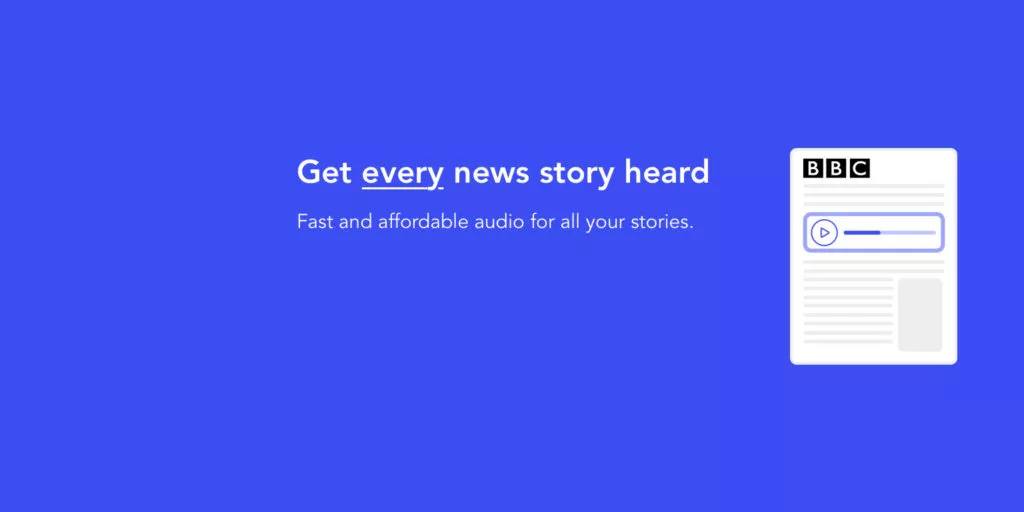Here is the news, from UK Fundraising, read by…
Listen up! As some of you have spotted, UK Fundraising has been publishing audio versions of its news for the past few months. It is automated, available very soon after the text article goes live, and you don’t have to listen to my dulcet tones at all. Here’s how we’ve done it.
A video and/or an audio version of our UK Fundraising news and posts has been in our thoughts for several years, in fact way back to 2000 and the creation of Ananova, the virtual newsreader, by the Press Association. But how could we automate it, produce good quality and useable content, and both incorporate it within our site and make it easily available via readers (listeners or viewers)?
We’re nearly there with a video version of each story, although haven’t located a provider that can match our budget.
But that’s why we’re pleased that we have been live with audio versions of our news since early Summer. Try it out: have a look at a recent news story and you should notice a mini player under the main image and above the main text.
SpeechKit
The tool that has made it possible is SpeechKit. It’s the first of its kind audio-as-a-service platform for digital publishers. It enables us to offer instant content creation, distribution, analytics and monetisation, although we’ve not yet taken advantage of the latter.
Before that we’d been looking at Amazon Polly, but SpeechKit has far exceeded that tool for us, both in terms of its usability and because of the excellent level of support the team has provided.
Why are we getting to grips with audio? If you listen to podcasts or use a smart speaker at home you’ll understand.
But this isn’t about creating a podcast: it is creating audio versions of our news items and articles. As the SpeechKit founders state: “by serving audio within existing media routines, through publisher websites and apps, this format strengthens a direct relationship with the reader.”
Smart speaker adoption is growing at 57% across Europe and more publishers than ever are experimenting with new audio formats. And yet, with the exception of a few well-resourced newsrooms, it can still be hard for people who want to listen specifically to news through their headphones.
As with many digital tools, we often test them out on our site with half an eye on how they might benefit charities, so that we can share what we learn through consultancy or our training courses. The key element of SpeechKit for us is that it automates the process of converting text to speech, and speech that is comfortable to listen to.
Development of SpeechKit
Founders Patrick o’Flaherty and James MacLeod have been working alongside news publishers for over five years, working on fine-tuning a tool that simplifies audio for newsrooms.
SpeechKit launched a beta version of the service in spring 2018 and is now live on 100+ news sites across the world including Jyllands Posten (Denmark), The Canary (UK), Business Live (South Africa) and La Prensa (Nicaragua). It is frequently updated with new functionality. For example, its WordPress plugin last month added the facility to highlight text in the article so that only that element or elements are used in the audio version – a way of extracting key content from perhaps a longer article.
They have also overcome the challenge provided by embedded tweets in news stories. We often use those, so this was a benefit for us.
Early results “show significant improvements in engagement“, with readers spending more time-on-site where audio articles are made available.
Advertisement
Next steps
We have more to do with SpeechKit. Moving from the free version is on the cards – we get up to 25 articles converted to audio each month so we’re already missing out on converting some articles.
We also plan to make use of SpeechKit’s tools for making our news available via Alexa and popular audio/podcast channels so that you can automatically receive UK Fundraising’s news and content via your headphones.
And we’ll certainly be testing out the pre-roll advertising opportunity. If that’s of interest, contact Trevor Dorrell for details.
We’re also curious to see how charities are using automated and scaleable text-to-speech services like this.
You heard it here first…






